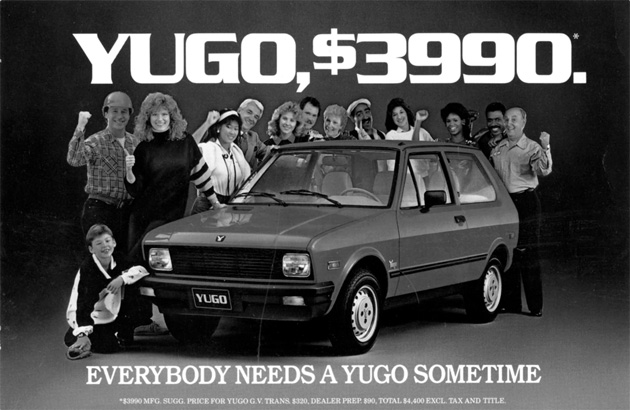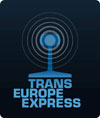
Andrej Klemenčić: Yugoslavia – a homeless word (part two)
The Us Vs Them Dilemma
At some point, I decided to try and meet some other requirements and was granted a scholarship to a prestigious UK public school. Believing firmly that prestigious is better than adequate; I walked through the beautiful entrance gate to The Dulwich College, thinking that being in a single-sex school will provide at least an interesting new experience. Finding me deprived of inspiration provided by the opposite sex, I in no time focused my attention from studying to trying to understand what these surroundings actually provided.
First of all, there was no language barrier, as I have been a native speaker. Secondly, London did not require putting a less urban perspective on things, particularly because Dulwich, despite its poshness had been a school where the London city folk would drive their children to in the morning, and pick them up in the afternoon.
There I realized that my identity issue was closely connected to the Us/ Them comparison, because everyone asked where I was from. While Slovenia was a battlefield between embracing the new, incomplete homeland, or refusing to do so precisely because of its lack to attune to all the levels of sentiments, perception and the scale of belonging, England wanted me to clearly identify. It did not take me long to realize that, while I can’t identify with Slovenia, I also have problems identifying with whatever else there should be. Without Yugoslavia, a descendant of an Italian, Austrian, Slovenian, Serbo-Slavonian, Dalmatian and Montenegrin families clearly has an identity issue. That issue actually became my new identity, although I was not aware of that at the time.
Coming back to Slovenia, I found that the relations towards the South had taken an unexpected turn. The young had discovered the Turbo-Folk genre created by war mongers, their wives and friends. The centre was in Belgrade, Serbia, where the war profiteers came to store the newly acquired goods and overflowing with sentiments connected to their new welfare, created a music genre which was a mixture of techno, pop and the traditional Balkan tunes. While the artistic merit of the music could be challenged, its popularity couldn’t. It took the post-Yugoslavia by storm, becoming the first brotherly phenomenon in the country which once rested on the principle of the „Brotherhood and Unity“. Bosniaks listened to the songs written and sung by the foe Serbs and vice versa. Even Croatia fell under the seductive tunes, and despite the powerful local lobby connected to Croatian pop music, it became the number one thing in the busiest night clubs throughout the country.
In Slovenia it suddenly became hip to be from the South, but only if that kind of music accompanied by “behaving like a brute, dressing like a prostitute” vibe was your thing. Despite efforts, I was never able to acquire the taste, so I was an outsider again. In time, Slovenians mostly grew tired of Turbo-Folk and only some of the descendents of the people from the former republics kept clinging to it, so the South could become dirty again.
When I went to the USA for the first time, already in the university period, I seem to have encountered the romantic colours of euro-centrism, or I just perceived myself as a person who should feel that. I started to embrace the idea of the common European space, and to look forward to the EU membership, and particularly the introduction of the Schengen system of no borders.
However, my term as Foreign Correspondent started in New York, and I went to America again. This time, I fell for New York, and thought it was the best invention since Sacher cake. But, being always conscious of the fact that I do not want to replace my European identity for a more plastic one, I guess I took all that the city had offered as one plays with an infinitely big and complex toy. You know it’s not real, but you don’t care, because it is the best toy in all the toy shops.
Yugoslavia on a Balance
But something very Yugoslav was taking me back to the bosom of the Balkans – the core of Yugoslavia’s rise and fall – Belgrade. At the time, I somehow believed that Belgrade is the only city where one can, if not should, feel and declare Yugoslav. That, to some extent, is still true. Many hard-line Serbs perceive Yugoslavia as big Serbia full of brotherly almost Serbian people. The moderate ones perceive Yugoslavia as big Serbia full of brotherly almost Serbian people. The almost liberals perceive Yugoslavia as big Serbia full of brotherly almost Serbian people. The leftists see it as an ideal; the Yugoslavs of Belgrade as yearning and stolen reality and the new generations don’t see it all and couldn’t care less about it. With a few exceptions, of course.
Through embraces, walks, conversations, walks, love and other affairs, I tried to take in as much of Belgrade as I could and put the conclusions on some universal balance to see how much Yugoslavia is there left in it for me.
In time, I realized that there is no Yugoslavia in Belgrade, or on a rocky shore or in the smell of Bosnian forest. Yugoslavia is in Yugoslavs, who do not exist, as the country does not exist. They, we, are defined by the beauty and the soreness of perpetual homelessness, by the winds which can send us to any side of the world, unable to erase from us that very street of Belgrade night, the feeling of the rock beneath us and the smell of primeval while we walk through forest thick with ancient trees and new landmines. Nothing and no one can erase that, not even us, no matter how hard or how little we try.
Category: In the first person, On the road, Our writings
